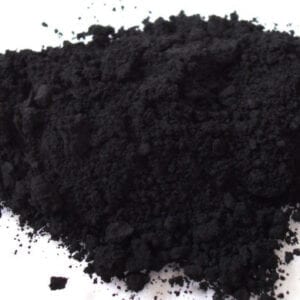Filtration through activated charcoal is one of the most commonly used processes in water treatment. Activated carbon is a material that removes contaminants such as organic matter, eliminates odours and makes drinking water taste better.
SUBSTANCES REMOVED BY ACTIVATED CARBON
Activated carbon water filters are used very effectively to remove harmful chemicals. Activated carbon is used to remove impurities and toxic substances for water purification. Some of the substances that are removed with activated carbon are:
- Non-polar substances such as:
- Mineral oil
- BTEX. Benzene, Toluene, Ethylbenzene and Xylene are volatile compounds in petroleum products such as gasoline.
- Poly aromatic hydrocarbons (PACs) - such as Benzene and derivatives. Benzene is a chemical, called an aromatic. It is a highly toxic product, known to be carcinogenic and to have serious health effects.
- (Chloride) Phenol. Phenols are substances, with characteristic odours, somewhat soluble in water and are very soluble in alcohol or ether. Some are used as disinfectants and others are formed naturally, e.g. tyrosine.
- Adsorption of halogenated substances: I, Br, Cl, H and F. Halogens are elements located in group 17 of the periodic table. Halogen salts are, for example, chlorides, iodides, fluorides, and bromides.
- Odours and tastes. Produced by the chemicals mentioned above.
- Yeast
- Various fermentation products
PRODUCTS NOT REMOVED BY ACTIVATED CARBON
The activated carbon filter does not retain all the harmful heavy metals and nitrates. It is important to change the filter at the times specified by the manufacturer, otherwise the activated carbon loses its effectiveness.
DOMESTIC WATER FILTERS
A domestic activated carbon water filter can be very useful for debris removal and water purification. Especially suitable for the removal of chlorine and limescale, where both elements are a problem. There are various filters, from small filters to be installed directly at the tap outlet, to larger filters for water purification in the house.
Activated carbon filters that are placed at the end of the faucet perform less well than those placed under the sink or basin due to the low volume of activated carbon they contain. It is also recommended that activated carbon filters be replaced at twice the rate recommended by the manufacturers. Filters that "warn" when it is time to change the filter are inaccurate and saturation and consequent contamination of the water can occur long before the warning is given.
In any case, before buying an activated carbon filter, it is advisable to know why you are buying it and what you want to achieve with the filter.
WATER FILTERS WATER PURIFICATION
Activated carbon water filters are not only used in the domestic sector, but also in the industrial sector for water filtration.
Activated carbon filters are very effective in removing various chemicals that are harmful. These chemicals include chlorine, benzene, radon, tri-halo-methane solvent compounds, volatile organic chemicals such as pesticides and herbicides and hundreds of other man-made chemicals that can come into contact with tap water as it flows through the system.
The design form of activated carbon filters is single or 2-stage, where the activated carbon is the filter medium. The most common designs use single or two-stage filters, where activated carbon is introduced as the filter medium.
On an industrial level, the amount of activated carbon needed would be approximately 1 to 3 cubic feet of activated carbon for the treatment of 1 million litres of water. These data are for free chlorine concentrations below 1ppm.
For the behaviour of the carbon filter, the acidic character and the temperature influence how the activated carbon filter will behave. The activated carbon improves with lower pH (higher acidity) and lower water temperature.
The lifetime of an activated carbon filter should be specified by the manufacturer, but can vary approximately between 2500 and 4000 litres of water. There are several factors that have a direct impact on the lifetime of the filter, such as the size of the pores and the size of the particles to be filtered.
